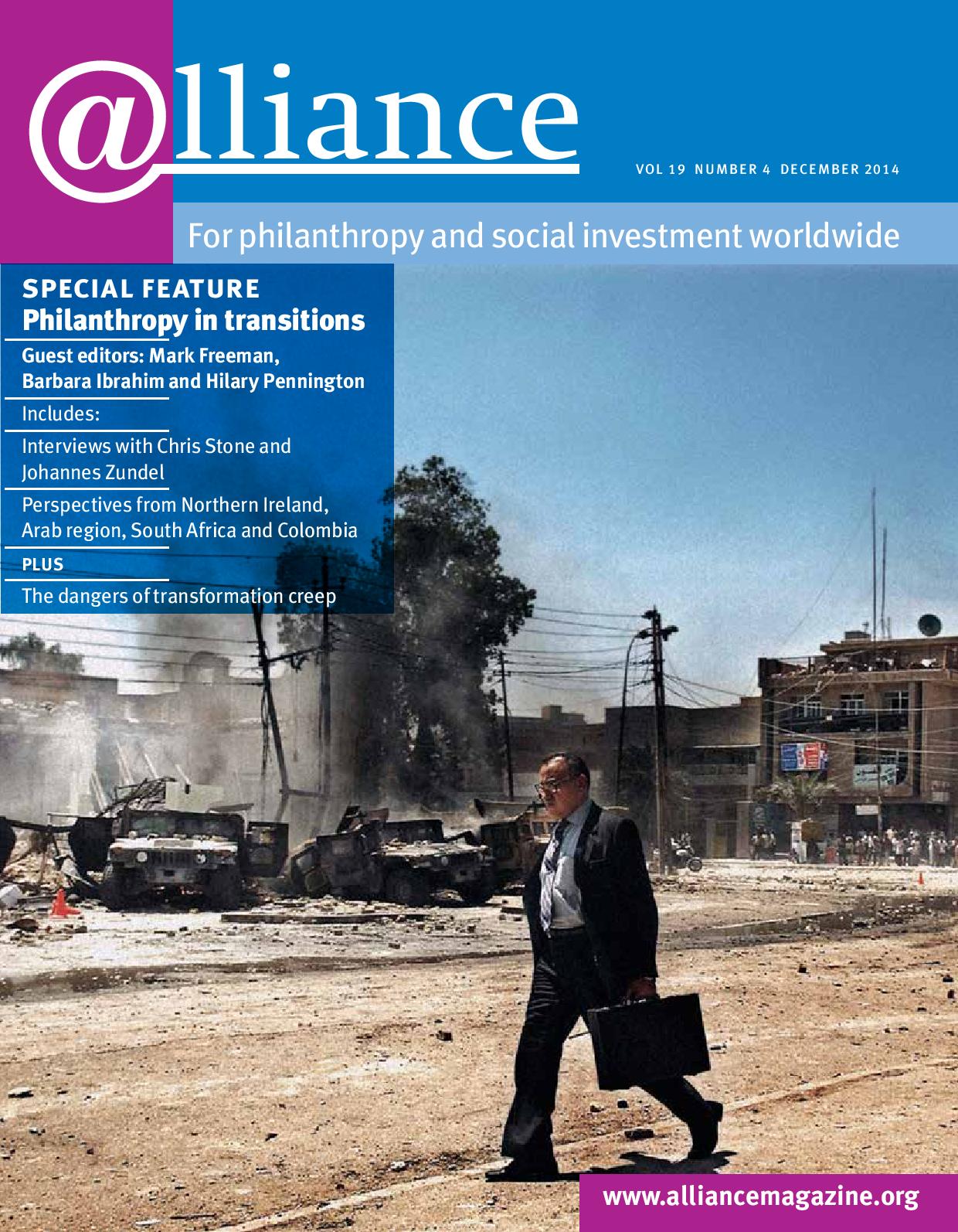The special feature of this issue of Alliance is profoundly topical. No week goes by without a mixture of news about transitions out of war or repression: it could be progress in places like Tunisia and Burma, regressions in countries such as Libya and Egypt, or peace negotiations in places like Syria and Colombia, where hoped-for transitions still lie ahead.
For foundations and philanthropists considering involvement in transitions, the catalogue of challenges can seem intimidating. But guest editors Mark Freeman, Barbara Ibrahim and Hilary Pennington insist that philanthropy has a pivotal role to play in shaping transition successes and avoiding failures. ‘In every transition private donors emerge who do things smartly – coordinate more, adapt better, venture further, stay longer. These philanthropists prove that there is nothing inevitable about failure in the rebuilding phase after civil conflict or repression.’
In fact, they see transitions as ‘periods in history when change happens swiftly and dramatically … in short, invitations to action for systems-minded philanthropists.’
Stressing that each transition is unique and that templates for success cannot be taken from one country and applied to another, the contributors to this issue also underscore the need for philanthropy to be more politically attuned and patient in order to get things right in a transition. ‘Outside actors should assume that the transition is precarious,’ warns Thomas Carothers, ‘subject to capture by predatory actors or to going off the rails in other ways very quickly.’ ‘I think we’ve learned that there is … no change that is irreversible,’ says Chris Stone of Open Society Foundations.
But what this special feature highlights above all is that, for those prepared to demonstrate much-touted but all-too-little-practised virtues of philanthropy such as being courageous, flexible and responsive, transitions provide unmatched opportunities to achieve real change. ‘For philanthropists prepared to take bold risks, transitions offer the chance to be at your best,’ says Berghof Foundation chair Johannes Zundel.
We were fortunate to be able to enhance this special feature of Alliance with powerful images of conflict, transition and social change. For that I would like to express my enormous gratitude to Magnum war photographer Moises Saman, who has so generously allowed us to use his photos free of charge. For me the cover photo, showing a besuited man carrying a briefcase, presumably on his way to work, with smouldering Humvees and destroyed houses in the background, perfectly encapsulates the nature of transition: hopeful and fragile at the same time.






Comments (0)